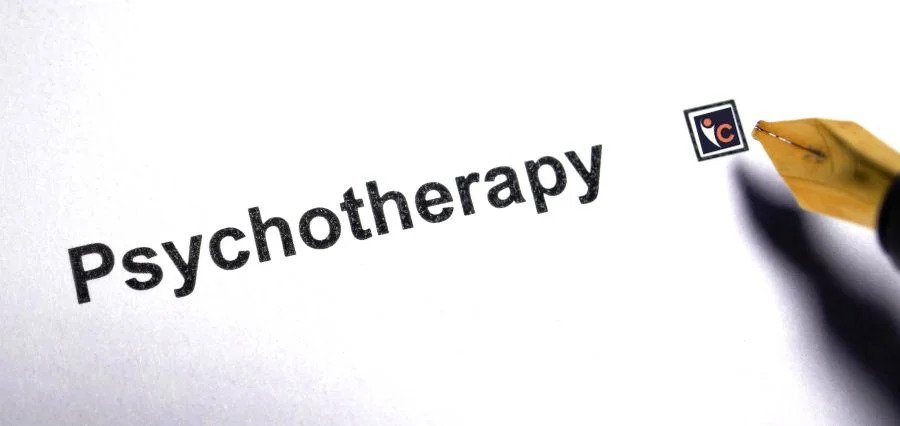Type of Psychotherapy isn’t a doctor’s term—it’s a healing process which provides the patient with the ability to cope with his/her disease and become emotionally strong. While the whole world gives more and more attention to the mind, new types of therapy emerged to treat various diseases. From depression and anxiety disorders to trauma and behavior disorders, psychotherapy emerged as a vital part of psychological treatment. But for whom? This is where the comfort of the different type of psychotherapy comes in.
Let us examine in the world of therapy styles and breaks the methods, pluses, and the function that every type of psychotherapy performs in mending.
1. Cognitive Behavioral Therapy (CBT): The Most Popular Type of Psychotherapy
Of all its methods, CBT is perhaps the most formal “style of psychotherapy” and tries to change some patterns of thinking. CBT tries to replace negative ideas with rational, balanced ones.
How it works:
- Helps provide effective coping devices with daily stress
- Best at overcoming worry, phobias, and depression
- Provides measurable and quantifiable improvement
Keyword tip: If you’re looking for therapy that addresses the way you think and what you do, this form of psychotherapy can be your ticket.
2. Psychodynamic Therapy: An Evergreen Form of Psychotherapy Based on the Unconscious
Psychodynamic therapy is extremely backward-looking and unconscious factors that may be driving present behavior. It’s a reflective “form of psychotherapy” in which patients sort out past problems and unconscious emotions.
Why it works:
- Assists in revealing long-term emotional patterns
- Yearns for profound self-awareness and understanding
- Most appropriate for individuals with emotionally complicated issues or trauma
This form of psychotherapy is most appropriate for individuals who desire to reveal the inner attributes of their psychological being.
3. Humanistic Therapy: Person-Centered form of psychotherapy
Humanistic educations like Client-Centered Therapy, Gestalt Therapy, and Existential Therapy are all about becoming the person you want to be and actualizing yourself. This “form of psychotherapy” helps you find your inner potential.
How it works:
- Dip learning about yourself in a non-judgmental environment
- Encourages emotional release and embracement
- Great for individuals who are stuck or lack self-confidence
Humanistic therapy is the “form of psychotherapy” where you may find the true you.
4. Dialectical Behavior Therapy (DBT): A Special Type of Psychotherapy for Emotional Regulation
Developed for the treatment of borderline personality disorder, DBT is a clinical type of psychotherapy that integrates CBT procedures with acceptance and mindfulness skills.
Why it works
- Successful in treatment of self-injurious behavior and intense emotional response
- Emphasizes mastery of skills in ability to endure emotions, manage emotions, and function interpersonally
- Facilitates development of emotional strength
For individuals who fluctuate excessively mood or with whom one finds it difficult to bond, this form of psychotherapy is a blessing.
5. Interpersonal Therapy (IPT): A Relationship Form of Psychotherapy
IPT is a brief form of psychotherapy to improve interpersonal relationships and social functioning. It’s widely used in the treatment of depression and social anxiety.
How it works:
- Treating role transitions, loss, and social isolation
- Enhances communication and problem-solving
- Aids in building rich relationships
This type of psychotherapy assures you, you don’t heal in isolation—you heal in relationship.
6. Exposure Therapy: A Brave Type of Psychotherapy for Phobias and PTSD
Exposure therapy is a tech-heavy type of psychotherapy where you’re led, step by step, through a safe, controlled exposure to what frightens you or traumatized you.
How it works:
- Proven treatment for PTSD, OCD, and phobias
- Eliminates avoidance behaviors
- Leads to desensitization of fear triggers through repeated exposure
If you are struggling with chronic phobias, this “form of psychotherapy” can shake off the lethargy of yours.
7. Eye Movement Desensitization and Reprocessing (EMDR): Another Form of Psychotherapy for Recovery from Trauma
EMDR is a revolutionary form of psychotherapy that employs bilateral stimulation, such as focused eye movement, to reduce and process the emotional charge of traumatic memories.
How it works:
- Perfect for PTSD and stress of trauma
- Generally faster than the ordinary talk therapy
- Reconditions the brain’s emotional reaction
This form of psychotherapy is an amalgamation of healing therapy and neuroscience and offers new hope for the traumatized victims.
8. Family and Group Therapy: A Shared Form of Psychotherapy
Part of the healing can be done with others around. Family and group therapy are both a shared form of psychotherapy where people learn from common ground and create communication agendas.
Why it works
- Encourages mutual understanding and empathy
- Applicable to social anxiety, relationships problems, and addiction recovery
- Reduces alienation by establishing a support community
These social settings contain an active kind of psychotherapy with mutual awareness and honesty that allows recovery.
9. Art and Creative Therapies: A Nonverbal Kind of Psychotherapy
Healing through creative expression in painting, music, or dance is flat-out cathartic—therapeutic. This type of psychotherapy offers a secure way to act out fledgling feelings.
How it works:
- Best for children and trauma survivors
- Initiates cognitive awareness and emotional release
- Allows personal story through symbolic expression
This type of psychotherapy assures healing isn’t so much a word thing—about saying it.
Last Thoughts: The Best Type of Psychotherapy for You
All forms of psychotherapy do something. Your selection is critical based on your need, emotional constitution, and endurance. Some are short with a definite aim, yet others engender deep inner healing over time. Having an experienced counselor in terms of the particular “form of psychotherapy” for your issue is best.
| Mental Health Concern | Recommended Type of Psychotherapy |
|---|---|
| Anxiety, Phobia | Cognitive Behavioral Therapy (CBT), Exposure Therapy |
| Depression | Interpersonal Therapy (IPT), Psychodynamic Therapy |
| Trauma, PTSD | EMDR, Exposure Therapy |
| Emotional Regulation | Dialectical Behavior Therapy (DBT), Humanistic Therapy |
| Relationship Issues | Family Therapy, Interpersonal Therapy |
| Children / Creative Expression | Art Therapy, Play Therapy |
Conclusion
Mental illness is not a do-it-all approach—nor is therapy. Considering all forms of psychotherapy is the promise of getting better, of changing, and of becoming capable of opening. New to this or already in progress, to become informed about these diverse modalities will enable you to learn how to make good, loving choices about your mental illness.





